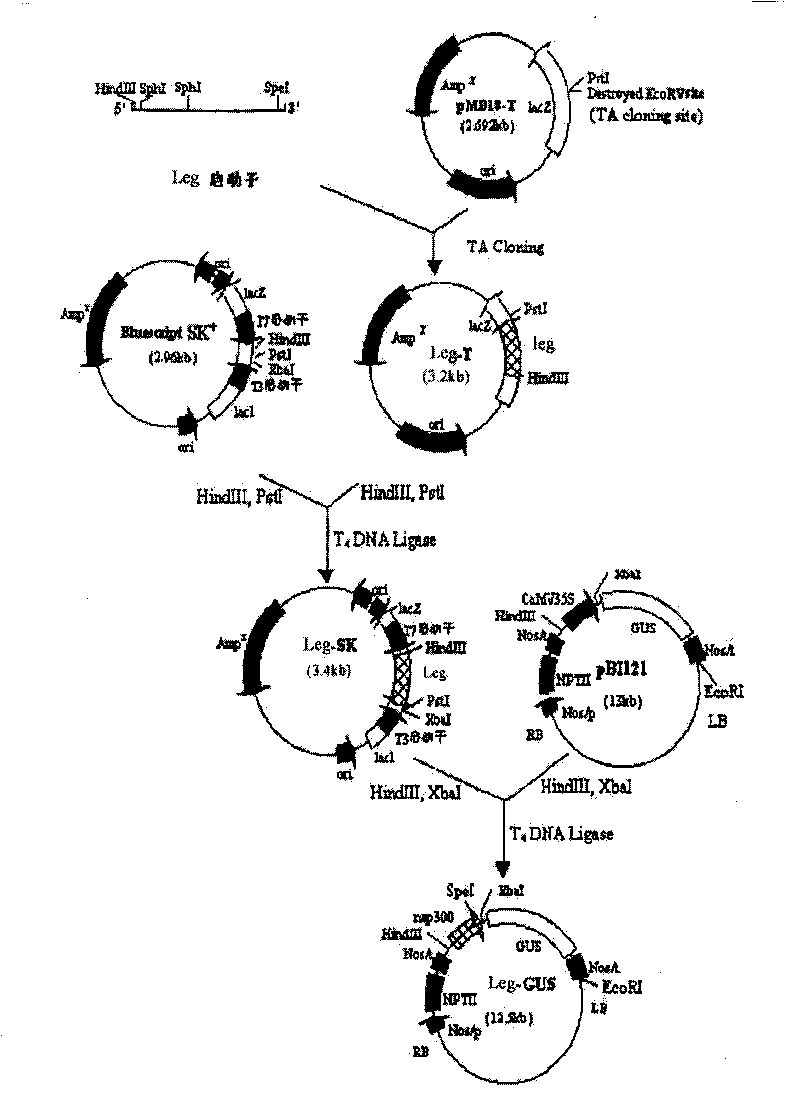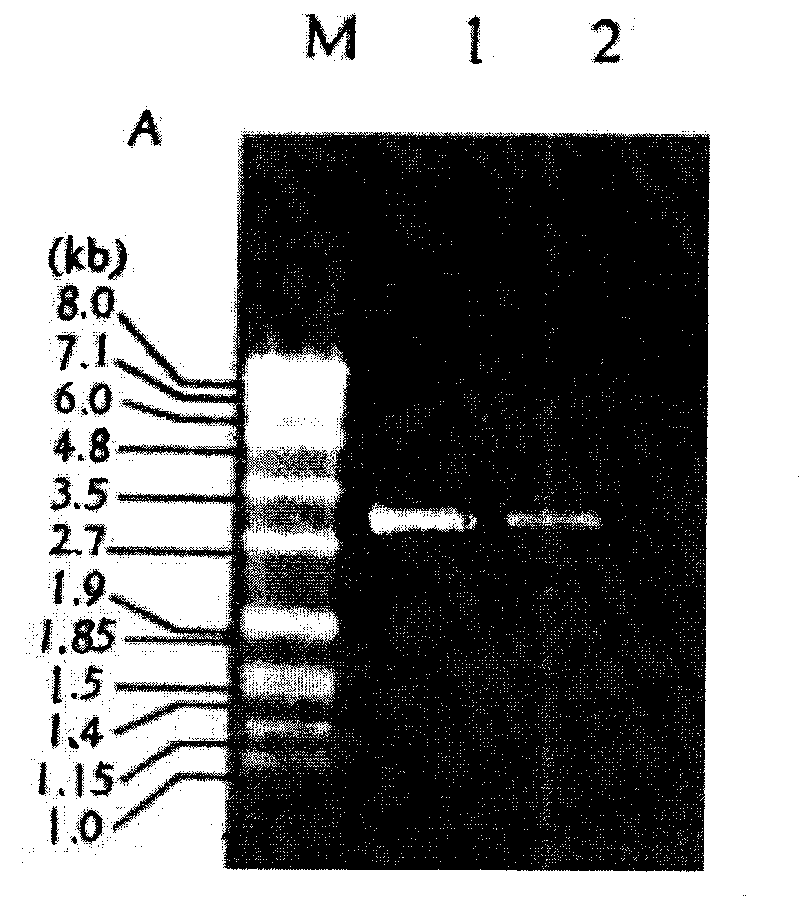Method for obtaining transgenic plant for producing degradable plastics
A technology of transgenic plants and degrading plastics, applied in the fields of botanical equipment and methods, plant products, angiosperms/flowering plants, etc., can solve the problem that PHB specific expression cannot be achieved, the expression level is low, and the toxicity of PHB to plants cannot be effectively avoided. role and other issues to achieve the effect of solving the energy crisis
- Summary
- Abstract
- Description
- Claims
- Application Information
AI Technical Summary
Problems solved by technology
Method used
Image
Examples
Embodiment Construction
[0019] 1. Cloning of the faba bean Leg gene promoter and construction of its vector:
[0020] (1) Design degenerate primers according to the faba bean genome sequence data, and use the faba bean total DNA as a template to achieve amplification by PCR. The amplification primers are:
[0021] Primer P1:
[0022] 5 `cttgctgtg cagctcgcct agtgaagct 3`
[0023] Primer P2:
[0024] 5`acccagata caatcgctgt taacgtagt 3`
[0025] 94°C for 5min; 35 cycles of 94°C for 30s, 55°C for 1min, and 72°C for 2min; 72°C for 10min. A DNA fragment of about 3.2 kb can be generated, and the sequenced result is shown in the sequence list.
[0026] On this basis, the following two primers were designed and synthesized to realize the integration of HindIII and Sal I restriction sites:
[0027] Primer L1:
[0028] 5'-GCG aagctt gtgtcgctcagctcgcctagtg-3'
[0029] Hind III
[0030] Primer L2:
[0031] 5'-cgc gtcga agcgacaattgcaggcagca-3'
[0032] Sal I
[0033] A HindIII site and a Sal I site...
PUM
 Login to View More
Login to View More Abstract
Description
Claims
Application Information
 Login to View More
Login to View More - R&D
- Intellectual Property
- Life Sciences
- Materials
- Tech Scout
- Unparalleled Data Quality
- Higher Quality Content
- 60% Fewer Hallucinations
Browse by: Latest US Patents, China's latest patents, Technical Efficacy Thesaurus, Application Domain, Technology Topic, Popular Technical Reports.
© 2025 PatSnap. All rights reserved.Legal|Privacy policy|Modern Slavery Act Transparency Statement|Sitemap|About US| Contact US: help@patsnap.com



